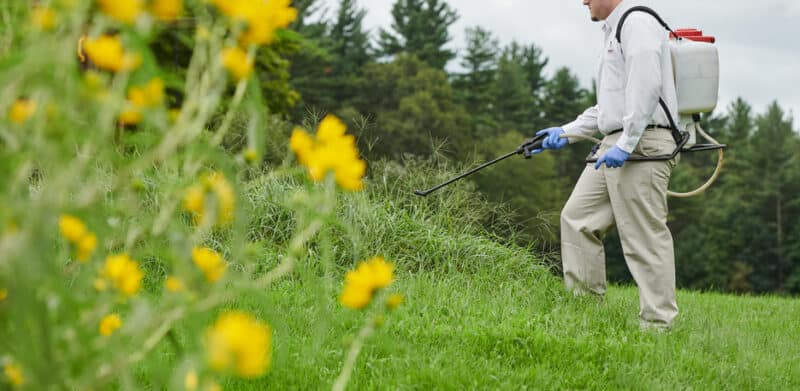
While the threat of tick-borne disease is usually associated with spring and summer, ticks are now a problem year-round in New England. This is attributed mainly to climate change. Winters are becoming more mild and ticks are becoming active during a time of year they’re usually dormant. This increases the public health risk presented by ticks.
If the temperature is at or above 40 degrees Fahrenheit, ticks will emerge to find hosts in the winter. Data from the U.S. Global Change Research Program show that New England temperatures are rising faster than national and international averages. The largest increases in the region are happening during winter.
Click here to call Modern and stop ticks from taking over your yard!
Tick Facts
- Tick activity and tick-borne diseases like Lyme disease, anaplasmosis, babesiosis, Borrelia miyamotoi, and Powassan virus, occur year-round in New England
- Although tick activity depends on the weather, there are usually two spikes during the year. The first starts in March or April and lasts through August. The second occurs October through November.
- It’s important to take steps to prevent tick-borne diseases. Precautions include the use of bug repellents that contain EPA-registered active ingredients like permethrin, picaridin, or DEET, wearing light colored clothing to easily spot ticks, wearing long sleeves and long pants, doing daily tick checks, and quickly and correctly removing attached ticks.
- Promptly removing an attached tick matters. The bacterium that causes Lyme disease takes 48 hours of tick feeding time to pass the pathogen from tick to person. Rocky Mountain spotted fever takes two hours. Tick-borne relapsing fever is less than half an hour.
New Species Heading North
The Connecticut Agricultural Experiment Station conducts continuous tick research. Entomology Department head Dr. Goudarz Molaei spoke about three tick species new to the Northeast.
“In recent years, we have discovered and reported the invasion of the Northeast, including Connecticut, with three important tick species,” said Dr. Molaei. “We were hoping when exposed to the Northeast that they wouldn’t be able to survive the winter. To our disappointment, they were able to survive. Now all three have established populations.”
The three species are:
- Lone Star tick
- Gulf Coast tick
- Asian long horned tick
Dr. Molaei added that all three have reached Connecticut, but only the Lone Star tick is in Massachusetts. He thinks that all three species will eventually get there. The species are coming from the warmer southern states. They each can carry various diseases. Some are even new to the Northeast. Frighteningly, the Asian long horned tick can reproduce without a mate. This will create even more issues.
Call 1-800-323-7378 to schedule Homecare Mosquito, Flea, and Tick service now!
The Modern Solution
Modern Pest can help protect your family from the dangers of tick-borne illness. Modern’s Homecare Mosquito, Flea, and Tick service protects against all three disease-spreading vector pests. We’ll help you enjoy your yard while we minimize the health risks to your family and pets. The service consists of six monthly services, from April through September.
